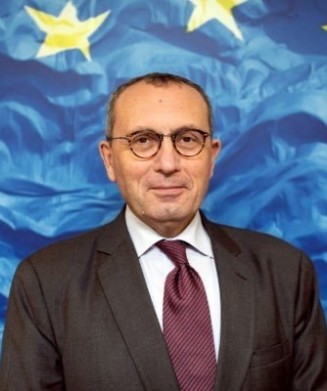
EUniWell Policy Commission
17/06/2020, 2.00 to 3.30 p.m. (CEST)
As part of its mission to define how a modern, civic and entrepreneurial university can support social and individual well-being in a global setting, EUniWell is pleased to launch a series of International Policy Commissions. The first of these was chaired by Stefano Manservisi, former Director-General of the European Commission’s Directorate General for International Cooperation and Development.
EUniWell Policy Commissions will bring leading figures from the public, private and third sectors together with EUniWell academics to discuss and generate new thinking on well-being issues of global, national, local, and civic concern.
Our opening panel discussion took place on 17 June 2020.
Well-Being in a Covid World
The challenges that the COVID-19 pandemic poses to well-being give EUniWell’s mission – to understand, measure, rebalance and improve the well-being of individuals, communities, and society – new urgency. In this inaugural panel discussion, Stefano Manservisi discussed key challenges and responses with experts from EUniWell partner universities.
Read a review of the panel discussion here.
The video of the panel discussion can be watched here.

Stefano Manservisi
Distinguished Fellow, Center for Global Development and Overseas Development Institute
Stefano Manservisi has had a long and distinguished career as a senior political adviser and civil servant within the institutions of the European Union. He served in the European Commission as Director-General for International Cooperation and Development (DEVCO) and has also held positions as Director-General for Migration and Home Affairs, and Director-General for Development and Relations with African, Caribbean, and Pacific States. A lawyer by training, he enjoys teaching and has been a visiting professor at various universities and research centers.
The panelists
Judith Barth, EUniWell Chief Student Officer, from the University of Cologne
Judith Barth is a student at the University of Cologne. After finishing her Bachelor’s degree in International Relations in 2019, she started studying law with a focus on International Humanitarian Law. She completed internships at the Ministry of Foreign Affairs and German NGOs. Judith spent several years studying in the USA and Spain.
In February 2020, she was elected as Chief Student Officer of EUniWell. She is part of the EUniWell Steering Team and has been closely involved in developing the EUniWell work programme. During the COVID-19 pandemic she works closely with students, researchers and administrators from the seven universities to facilitate an exchange of experiences and best-practice methods.
Professor Matthew Broome, Professor in Psychiatry and Youth Mental Health, and Director of the Institute for Mental Health (IMH) at the University of Birmingham.
Matthew is an academic psychiatrist interested in the onset of mental disorders in young people. He works largely on early psychosis, but also in mood instability, autism, and in suicide and self-harm. Under Matthew’s leadership, the IMH is providing clinical and operational support to NHS workers at the frontline of tackling the COVID-19 pandemic. The IMH is developing its research response to the pandemic, including a collaboration between HSBC and schools across Birmingham to examine trauma and bullying during lockdown.
Professor Arnold Tukker, Professor of Industrial Ecology and Director of the Institute of Environmental Sciences at Leiden University
Arnold currently co-ordinates major programs with key European research institutes in the field of resource-efficiency, constructing the world’s most ambitious and detailed global energy/resource/economic input-output databases and models (EXIOBASE). He is also engaged with work of the UN on the Green Economy Initiative, the Resources Panel, the Ten Year Framework of Programs on Sustainable Consumption and Production, and Sustainable Development Goals.
Professor Christiane Woopen, Professor of Ethics and Theory of Medicine, and Head of the Center for Ethics, Rights, Economics, and Social Sciences of Health (ceres) at the University of Cologne
Christiane coordinates and leads several international and national research projects concerning ethical aspects of reproductive medicine, neuroethics, quality of life, aging, digital autonomy and genome editing. She is also chair of the European Group on Ethics of Science and New Technologies and co-speaker of the Data Ethics Commission of the Federal Government of Germany. She currently serves as a member of the Corona Expert Council of the State of North Rhine-Westphalia.
